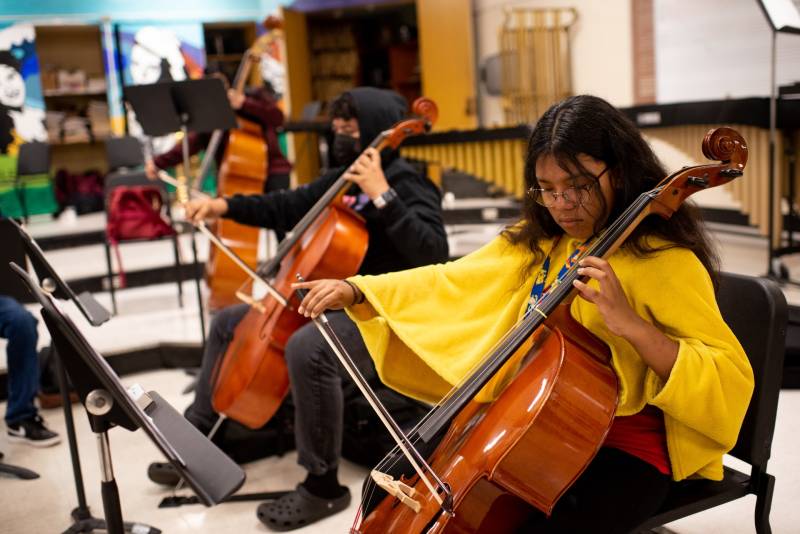When Amy Richter was a little girl, her father often traveled for work. He often came home bearing gifts of music and record albums. They bonded while poring over all that vinyl, she recalls, exploring the world of music from classical and rock to bluegrass.
Richter’s love of music only grew as she got older and studied voice and piano. Diagnosed with dyslexia, she also found that music helped her cope with her learning disability. It helped her gain focus and confidence. That’s why she studied music therapy in college. She knows the power of music to supercharge our brains.
“Music really became the guiding force in my education and helped me to connect with other people, helping build confidence through performance, also helping with my mental health,” said Richter, who founded Music Workshop, a free music curriculum designed to cultivate a love of music from a young age, that can help schools beef up their arts offerings on the cheap. Schools across the country, including hundreds in California, from Yuba City to San Diego, now use her program. “It really became a tool in my life to better myself.”
To be sure, aficionados of the arts have long argued that art transforms us, but in recent years, neuroscience has shown just how music can shape the architecture of the brain. This cognitive research illuminates the connection between music and learning and gives heft to longstanding arguments for the power of music education that are newly relevant in the wake of California’s Proposition 28, which sets aside money for arts education in schools.
“The K-12 grades are the years in which brain function is most rapidly evolving and information from all different types of learning and subjects is being processed and absorbed, including connections across what we might think of as different school subjects, but they are all connected in our developing brains,” said Giuliana Conti, director of education and equity for Music Workshop, which is particularly popular at schools that often tap substitute teachers in an era of high teacher absences.
